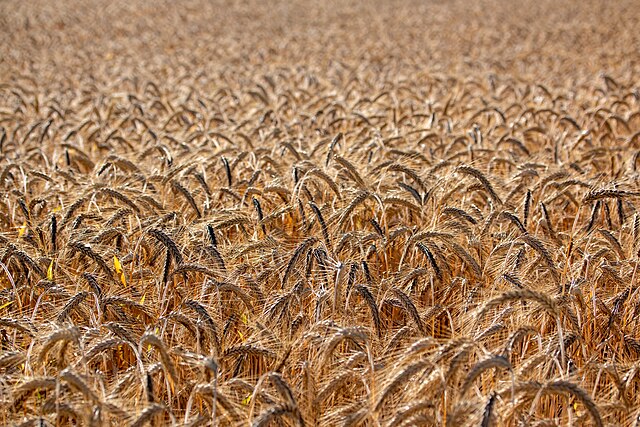In the vast, arid expanses of Wuyuan county, Inner Mongolia, China, a team of scientists led by soil scientist Li Yuyi is working to reclaim swathes of land rendered infertile by saline-alkaline soil. This type of soil, characterized by high levels of salt and sodium, poses a significant challenge for agriculture.
Saline-alkaline land can occur naturally in arid regions due to evaporation exceeding precipitation. However, human activities like over-irrigation can also contribute to the problem. In Wuyuan, farmers relying on the nearby Yellow River for irrigation have inadvertently caused the water table to rise, pushing salts upwards and accumulating in the soil.
To combat this issue, Li and his team have developed a novel soil treatment method. They lay crop stalks, measuring about 5-15 centimeters in length, flat under the soil at a depth of 30-40 centimeters. This acts as a barrier, preventing the salt from rising to the surface. Additionally, they cover the ground with plastic to retain moisture, crucial for plant growth in the arid climate.
This seemingly simple solution has yielded impressive results. According to a report in Science and Technology Daily, the salt content in the treated soil was reduced by an average of 36%, leading to a 30.5% increase in crop yields.
Li’s team spent over a decade refining this method, having previously explored various soil restoration techniques in other saline-alkaline regions of China like Shandong and Heilongjiang provinces. Their research demonstrates the importance of tailoring solutions to specific local conditions.
The problem of saline-alkaline land stretches far beyond Wuyuan county. In fact, China ranks third globally in terms of the area affected, with roughly 100 million hectares (247 million acres) of land classified as saline-alkaline, a third of which has the potential for improvement through treatment or improved farming practices.
The vast majority of this barren land is concentrated in central and western China, encompassing regions like Qinghai province, Inner Mongolia, and the Xinjiang Uyghur Autonomous Region.
Recognizing the gravity of this issue, China has implemented large-scale national initiatives to manage saline and alkaline soil since the 1950s. In July 2023, President Xi Jinping emphasized the importance of “comprehensive improvement and utilization” of saline lands, highlighting the critical need to address this challenge.
Scientists in China have developed over 40 different methods and technologies for treating saline soil, according to Ma Wei, a researcher at the Jilin Provincial Academy of Agricultural Sciences. Moreover, China is actively sharing its knowledge and technology with other countries facing similar challenges, particularly those participating in the Belt and Road Initiative. Additionally, China is open to learning from others, having introduced salt-tolerant rice seeds from various countries, including Italy, Japan, and the United States.
With a population of 1.4 billion people, ensuring food security remains a top priority for China. Following a record-breaking harvest in 2023, the country aims to maintain this success by increasing per unit yield and stabilizing sowing acreage, as outlined in a statement from the national rural work conference in December 2023. Officials pledged to maintain total grain output above 650 million tonnes annually, a goal achieved since 2015, emphasizing China’s prioritization of self-sufficiency in the face of climate change and a volatile global food market.
President Xi, in his address to the rural work meeting, emphasized the critical role of farmland, calling it “China’s lifeblood” and urging increased investment in “high-quality” farmland.
The issue of saline soil is not unique to China. According to the Food and Agriculture Organization (FAO) of the United Nations, over 833 million hectares of land globally are affected by salinization, representing an area roughly four times the size of India and encompassing 9% of the world’s land surface. Unsustainable agricultural practices, overexploitation of resources, and a growing global population are cited by the FAO as key contributors to this alarming rate of soil degradation worldwide.
The innovative work of scientists like Li Yuyi offers a glimmer of hope in the fight against soil salinization. His successful approach demonstrates the potential for scientific solutions to reclaim barren land and contribute to ensuring global food security.

